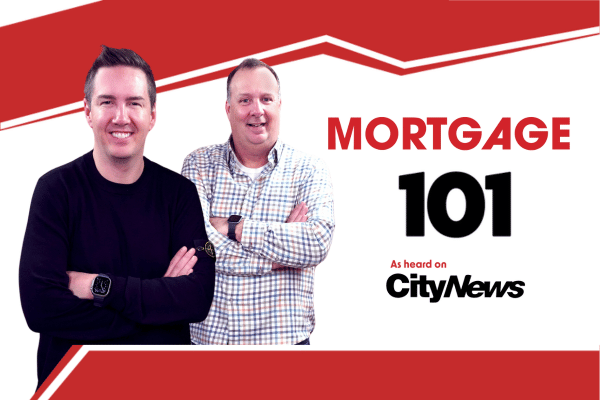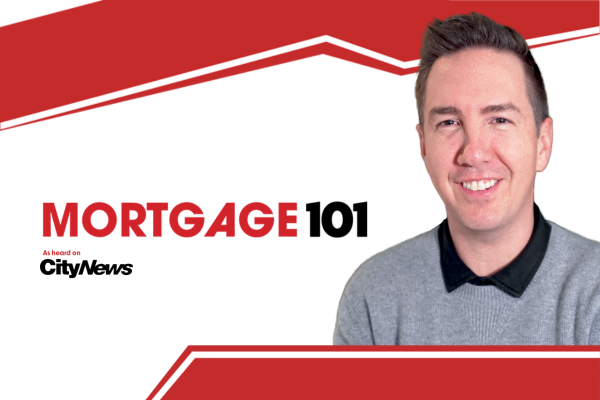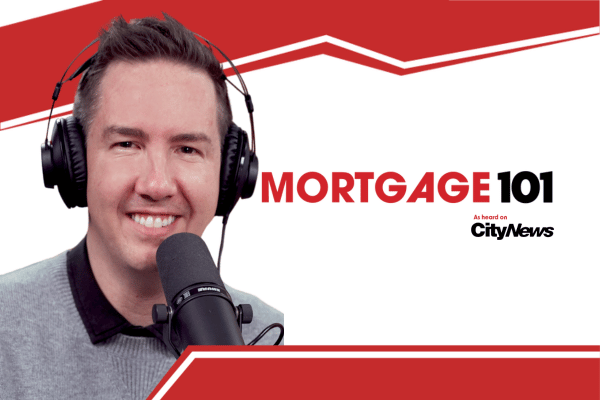Clinton Wilkins and Todd Veinotte are back this Spring to discuss the latest budget updates, including changes in mortgages and housing incentives. Plus, a debate between Beyonce and Dolly Parton country renditions and how the new housing incentives for new builds may expand the construction industry here in Nova Scotia!
Mortgage 101 – mortgages for new Canadians | August 2021 Part 4
In this episode of Mortgage 101 with Clinton Wilkins and Todd Veinotte, as heard on News 95.7, the guys talk about mortgages for new Canadians, types of programs for different residency statuses, how long mortgage funds need to be in Canada, and the main takeaway for anyone trying to get a mortgage: “Stop moving your money around.”
Mortgage 101 with Clinton Wilkins & Todd Veinotte – August 2021 – Part 4
Don’t feel like watching the video? Check out the transcript below.
Transcript:
Mortgages for new Canadians
Todd Veinotte: [00:00:00:05] Let’s talk about immigration. And obviously, in our province of Nova Scotia, immigration is a key component to growing the economy. We know that birth rates are traditionally down and we’ve got an aging demographic. So this is critically important. How much work do you do with new Canadians?
Clinton Wilkins: [00:00:23:17] We certainly do a lot of work with new Canadians. I would say, you know, one of the primary reasons that we do a lot of work with them is, you know, people at the branch might not be skilled on the new to Canada programs and what’s available, you know, for new Canadians.
And, you know, when we’re talking about someone who is a new resident here in Nova Scotia, we ask them really what is their residency status of Canada. And it’s really important to ask that because there’s different programs available for different types of new to Canada residents. So, for example, if a borrower is a permanent resident, they can qualify for the same programs that a Canadian can qualify for. So I think that’s really important to know.
So permanent residents can buy a home in Nova Scotia across the country with as little as five per cent down, and they can still access, you know, government programs like first-time home buyer incentive. And, you know, home buyer’s plan and all of those great things. And, you know, obviously mortgage insurance from the Canadian Mortgage Housing Corporation and the two private insurers.
Temporary residents are typically someone who would be on a work permit. And someone in a work permit, maybe you’re coming from the U.S. on a work permit or maybe somewhere, you know, somewhere else in the world. And you can certainly still buy a home in Canada as long as you still have at least a year left on your work permit and you need a minimum of 10 per cent down and you can get a high ratio insured mortgage. So I think that’s really important to kind of note.
Regular new to Canada programs require 35 per cent down
Clinton Wilkins: [00:01:52:21] There also are programs available for maybe borrowers that don’t have, you know, income to support the mortgage or maybe they don’t have established credit or, you know, they can’t provide any credit references. And typically, a regular new to Canada program is 35 per cent down. And that’s kind of more of a net worth type program.
And typically, you know, they’d put down 35 per cent, but then they would also have, you know, 12 months of mortgage payments in residual savings. So the lenders know that they can pay their, you know, mortgage while they’re getting established, while they’re working on employment, income, or maybe they’re going to become self-employed. I don’t know.
But I think immigration is so, so important. And, you know, we’ve been talking about this stat, and I think that I say the Halifax Partnership put it out and I’ll put it on them. And I’m not a 100 per cent sure it was them, but there was a survey done or I guess maybe some stats done that the population in Halifax was going to grow by 25 per cent over the next five years.
I can tell you I definitely saw some stats that there’s a lot of new residents that have moved to Nova Scotia and Halifax specifically, because of the pandemic. Obviously, we’ve had a better quality of life here, and I think some people that we’re even seeing migration from other areas of the country. You know, obviously I live and work in Halifax and I was born in Nova Scotia. There’s no place that I would rather be than here.
Todd Veinotte: [00:03:20:05] Thirty five per cent?
Clinton Wilkins: [00:03:22:01] Thirty five per cent down.
Todd Veinotte: [00:03:22:26] Yeah, that’s a massive number.
Clinton Wilkins: [00:03:24:27] It is a massive number, so, you know, that’s why we always try to work with new immigrants we’ll say, around will a program work for a temporary residency with the 10 per cent down, or if they are a permanent resident, how can we make it work with maybe the five per cent down? So there certainly are options and everyone can get a mortgage.
Funds need to be in Canada for a certain amount of time
You know, we’re we even see borrowers who just come right in and, you know, no employment income, no credit, no nothing. But, you know, they can have a bag of cash to make a big down payment and we can always make something happen. And, you know, depending on what the situation is, sometimes it’s more costly, maybe for the short run. But we can always make, there is always a solution out there
Todd Veinotte: [00:04:11:08] When it comes to them having cash. You have to vet where the money comes from?
Clinton Wilkins: [00:04:15:25] Yes, 100 per cent.
Todd Veinotte: [00:04:16:17] That’s a huge part of it.
Clinton Wilkins: [00:04:17:17] Some lenders require the funds being in Canada for at least 30 days before the closing. Right. Some lenders require the funds to have a 90 day history of, you know, where they’ve been. Sometimes it’s challenging to get a history from funds that are not in Canada. The reason being is certain countries limit the amount of money you can actually take out of the country.
But there are a few workarounds, obviously, for getting the money. And sometimes money gets sent from aunt, uncle, friends, and it’s really hard to trace the money and really where that money came from. So normally what I tell borrowers is if you need to have the money in the bank for 90 days or if you need to have the money in the bank for 30 days, depending on what a program and what lender you’re using, just get the money in the bank.
I think, you know, sometimes borrowers are waiting for the best exchange rate or, you know, they’re waiting to like sell an investment or, you know, they have a property selling in a, you know, another country.
“Stop moving your money around.”
Clinton Wilkins: [00:05:14:26] It’s always easier when we can prove where your skin in the game is coming from. And if the money’s in a negotiable fund and a Canadian institution, it’s always easier.
And the one rule of caution that I will say. And I’ll say this to, you know, Canadians too. Stop moving your money around. I sometimes see borrowers that have 10 bank accounts and they’re constantly moving money around from institution to institution, to institution. It becomes very challenging to get the history when there’s constant money moving around and any time that there’s large deposits, we have to prove where those funds came from.
It’s really for anti money laundering. And the federal government uses mortgage lending really, as you know, or a way for them to ensure that their income taxes are getting paid. But also, we’re basically auditing these bank accounts and the lenders audit it to ensure that the money that’s being used for the financial transaction and the financial instrument, instrument in terms of getting a mortgage, we know where those funds are coming.
Todd Veinotte: [00:06:20:29] Why would people move money around?
Clinton Wilkins: [00:06:22:17] I don’t know. It’s just like you move money from one institution to another, then from a savings account into a checking account, into an investment account, back into the checking account and then back to another institution. I’m not sure why people move money around.
I only have like one bank account in my personal name. Yeah. And, you know, in my business account, or my under my business, I have two bank accounts. I don’t know why people have so many bank accounts. Even 15 years later, it always perplexes me.. Why so many? And why move the money? I don’t know. And it’s really hard to unring the bell. But if you’re listening to our show. Just don’t move your money around. Really, really easy.
It’ll make my job easier and it seriously will make your job as a borrower much easier when we’re asking for that history. And then we’re going through those statements with a fine tooth comb to making sure that, you know, obviously that that money is your money.
See you next month!
Todd Veinotte: [00:07:14:24] How do people get hold of you?
Clinton Wilkins: [00:07:15:19] Check us out online. I think the first place to look is on our website at teamclinton.ca/radio. Lots of great information on there, lots of great contact information, blog posts. And, you know, there’s links right to our social posts. So you can see all kinds of great information, little snippets of our show. And we’ll certainly be back with you next month.
Todd Veinotte: [00:07:34:24] Hoe much fun did you have?
Clinton Wilkins: [00:07:35:29] I had so much fun. And, you know, I love that it’s August. And, you know, hopefully we have a great rest of the summer. And, you know, I’m really looking forward to September. I always feel September is kind of like a fresh start.
Todd Veinotte: [00:07:50:05] You got it. Thanks, Clinton.
Clinton Wilkins: [00:07:52:08] Thanks for having me.
Todd Veinotte: [00:07:53:05] All right. That’s Clinton Wilkins, your mortgage guru. And this is Mortgage 101: Your Guide to Homeownership here on News 95.7. We’ll be back next month.
If you have any questions, get in touch with us at Clinton Wilkins Mortgage Team! You can call us at (902) 482-2770 or contact us here.


